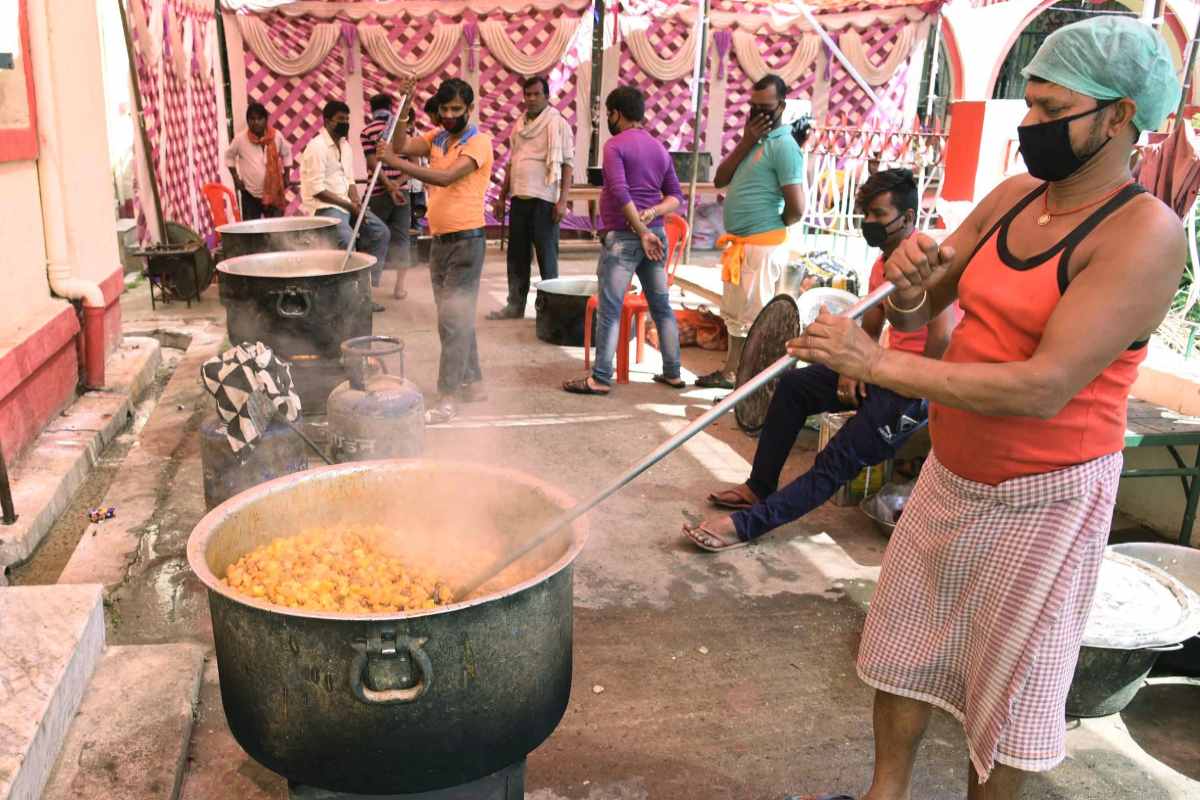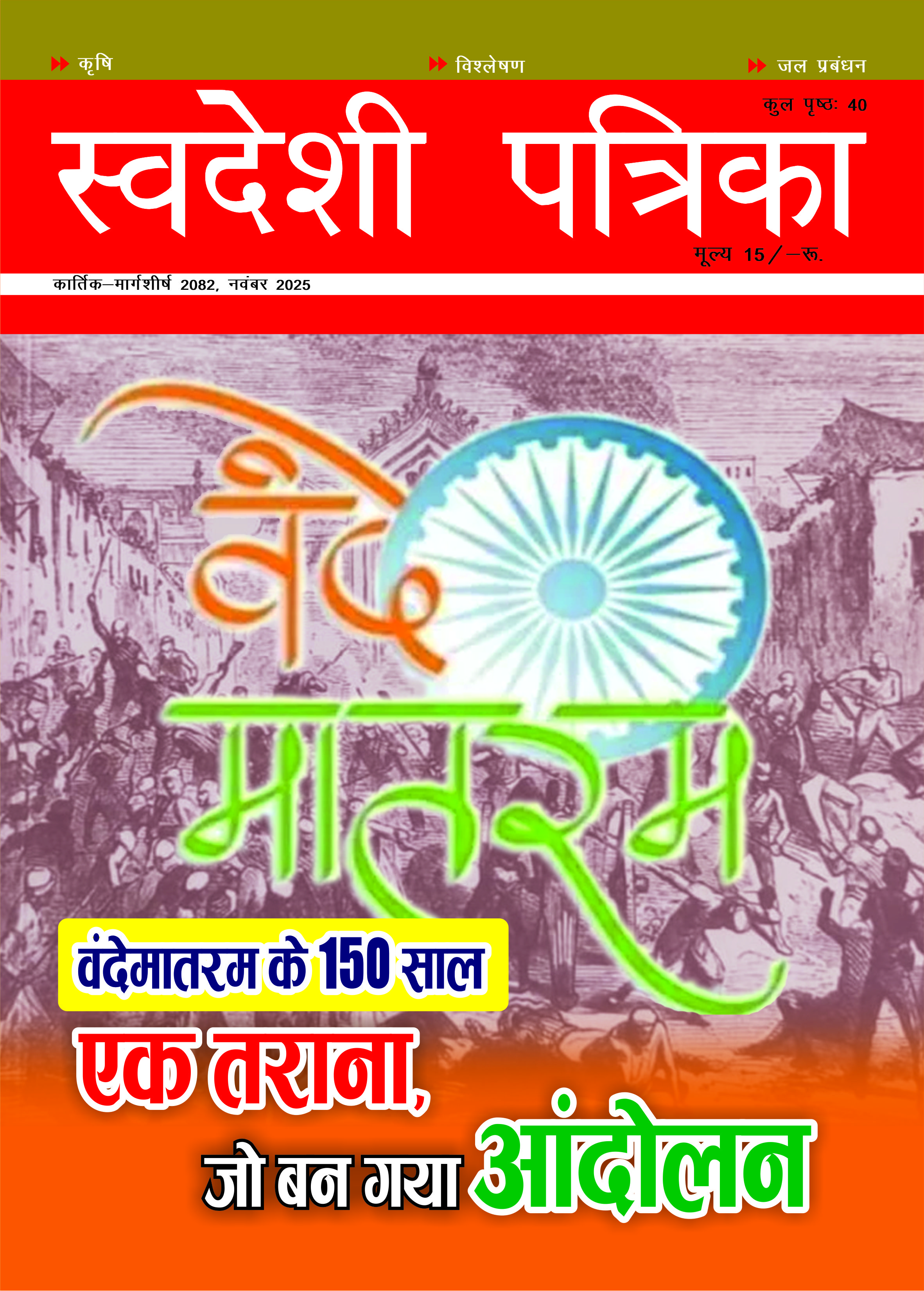
Irresponsible and Mischievous Report on Global Hunger Index by Welt Hunger Hilfe
16 October, 2022
Press Release
Irresponsible and Mischievous Report on Global Hunger Index by Welt Hunger Hilfe
On 15 October 2022, a German non-governmental organization 'Welt Hunger Hilfe' has once again released the ranking of 121 countries based on the World Hunger Index, prepared in a very irresponsible way to defame India, in which India has been ranked 107th out of 121 countries. Earlier in October last year, India was ranked 101 in the list of 116 countries. Far from reality, this report is not only faulty but also ridiculous not only from the point of view of data, but also from the point of view of analysis and methodology. This report, completely unusable for academics, looks more like a political stunt, which seems to be an attempt to defame some developing countries including India and their leadership. When such a report was released in October last year, there was a strong opposition from India on the data and methodology used in the same and then the World Food Organization (FAO) had said that these errors would be corrected, but now, once again using the same wrong data and methodology, this year's report is being released, the mala fide of this institution is becoming clear.
Today, when food security of many countries of the world is threatened, India is standing apart and has emerged as an example before the world. During the pandemic period, when all economic activities had come to a standstill and the sources of income for the poor, laborers and the underprivileged were getting exhausted, the scheme of providing free food to 80 crore people and its successful execution by the Government of India is exemplary. Although international agencies are engaged in misleading propaganda about food security in India, a different picture is emerging on the ground, which cannot be ignored.
Notably, Welt Hunger Hilfe does not collect any data on food consumption itself to prepare the World Hunger Index. And only data provided by the World Food Organization (FAO) is supposed to be used. In the past, the FAO has relied on the National Nutrition Monitoring Board, India. However, the board says it has not conducted any survey of food consumption in rural areas since 2011 and in urban areas since 2016. Instead, Welt Hunger Hilfe have chosen to use a so-called 'Gallop' survey of a private entity, with no theoretical justification, in place of board’s figures.
The Government of India has also questioned the methodology of this 'Gallop' survey conducted by the agency and the questions asked in the same. The press release issued by the government has complained that the report released by the agency did not cover the efforts made by the government for food security. It is worth noting that the Government of India has been running the world's largest food security program, in which not only free food grains and pulses are being distributed to 80 crore countrymen for the last 28 months but supplementary nutrition and has also been provided to about 7.71 crore children and 1.78 crore pregnant women and lactating mothers under Anganwadi services, by 14 lakh Anganwadis. Supplementary nutrition was distributed by Anganwadi workers and helpers and ration was delivered to the beneficiaries at their doorstep every fortnight. Rupees 5000 each is being given to 1.5 crore women for support and nutritious food during pregnancy and post-delivery period, on the birth of their first child.
It is notable that despite a ban on commercial export of wheat, the wheat export has been continued by the government of India to help countries having requirement of food grains. The government believes that India is ready to supply food items to any country in need. This fiscal year 18 lakh tonnes of wheat has been sent, till June 22 to many countries including Afghanistan, Bangladesh, Bhutan, Israel, Indonesia, Malaysia, Nepal, Oman, Philippines, Qatar, South Korea, Sri Lanka, Sudan, Switzerland, Thailand, Several countries have been sent, United Arab Emirates, Vietnam and Yemen. This was almost four times more than last year’s exports. We have to understand that banning of wheat exports does not mean that there is a shortage of food grains in India.
Today India is not only self-sufficient in food grains and other food products, it is also a net exporting country. The total food grain production in India in the year 2021-22 is 3160 lakh tonnes i.e. 227 kg per capita.
The production of food grains and other food items like milk, eggs, vegetables, fruits, fish etc. has increased in India significantly. If we look at the last two decades, it is known that the total production of milk was only 777 lakh tonnes in the year 2000, which has increased to 2100 lakh tonnes by 2021-22 and our daily per capita milk production has reached 413 grams. The total production of eggs was 12211 crores per year in 2020-21, as compared to only 3050 crores in the year 2000. That is, now the per capita availability of eggs has reached 88. The availability of vegetables, fruits, meat, pulses and edible oils and other food items has also increased at an unprecedented rate. Not only this, the countries which have been shown above India, the per capita availability of these food items is far less there.
Another interesting question is whether the indicators used in the Global Hunger Index such as stunting and wasting in children actually measure hunger? If these indicators are the result of hunger, then rich people have no problem with access to food, why should their children be stunted and wasted? 2016 data from the National Institute of Nutrition for 16 states shows that even among the wealthy (owning cars and homes) 17.6 per cent and 13.6 per cent of children were suffering from stunting and wasting respectively. And, mothers with overweight and obesity ( meaning thereby that they have adequate access to food) had children with stunting (22%) and wasting (11.8%). According to this report, there has also been a decrease in the mortality rate among children under the age of 5, as well as the tendency of stunting in children under the age of 5 years. It has to be understood that international agencies may have an agenda of their own, showing India in bad light, but our country is on right path and we have to tread the same path. It is noteworthy that the proportion of children stunted by their age has decreased from 54.2 percent between 1998-2002 to just 34.7 percent between 2016-2020. That is, now children are getting taller than before. Experts believe that since babies are getting taller than before, they are getting thinner due to increasing height, which is a good sign. Thus, there is a flaw in the methodology of measuring hunger.
The need of the hour is that such false reports should be thoroughly exposed and true data and should be presented based on the the ground reality, free from the juggling of statistics.
Swadeshi Jagran Manch once again expresses its anguish against this report and urge upon the government to reject this report and take appropriate action against the organisation, which is defaming India by spreading falsehood about India’s food security.
Dr Ashwani Mahajan
National Co Convenor
https://www.siasat.com/rss-affiliate-says-hunger-index-report-irresponsible-mischievous-2435202/


